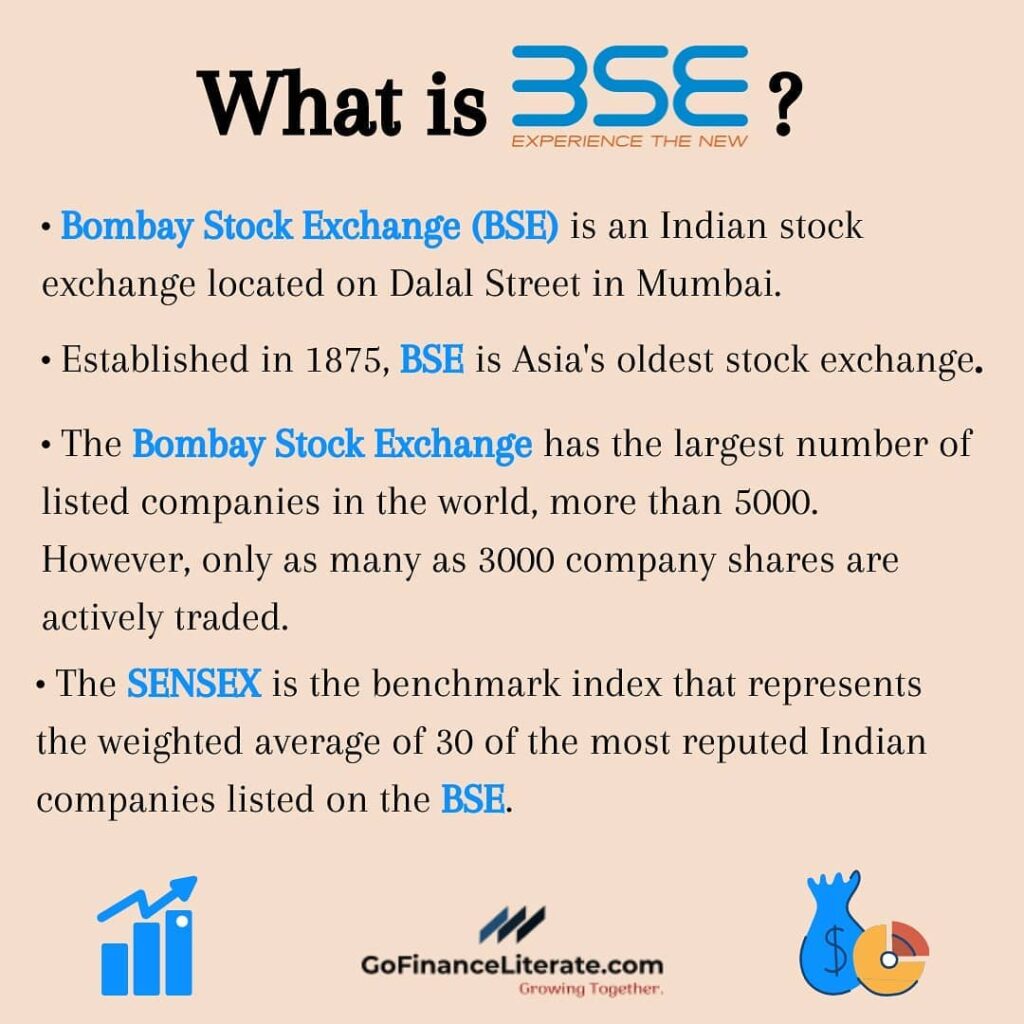Power of Index Funds can turn out to be an essential tool if you wish to become rich and achieve financial freedom. As a beginner, you must understand 3 important concepts that (according to us) are the most simple and effective ways to pave your pathway towards financial freedom.
- Power of Compounding
- Power of Dividends
- Power of Index Funds
These 3 combined together work like magic – but until and unless you grasp these 3 concepts with proper understanding, you won’t feel the joy of harnessing their powers. A lot of people actually know what to do, but aren’t able to execute it because they don’t trust the process, you must understand that it takes ‘time’. In this article, we’ll be talking about the Power of Index Funds.
Table of Content…
What is an Index Fund?
In order to understand the power of index funds, we must first look at what index funds are.
An index fund is a portfolio of securities that tracks a stock market index’s composition and performance. It is generally a passive investing strategy with an expectation that the index fund would balance its success by mimicking the performance of the major portion of the stock market as a whole.

What is an Index in the Stock Market?
In Layman’s terms, whenever we hear someone say that the stock market has climbed 1% or fallen 1% – they don’t refer to the whole stock market, they usually refer to the index representing the top stocks – popularly known as SENSEX and NIFTY in India.
SENSEX is the benchmark index that represents the weighted average of 30 of the most reputed Indian companies listed on the BSE (Bombay Stock Exchange). Whereas, NIFTY 50 is the benchmark index that represents the weighted average of 50 of the largest Indian companies listed on the NSE (National Stock Exchange).


The index is, quite literally, very important to us as it gives a general overview of how the stock market performs/is performing.
Why Index Funds?
There are more than 5000 companies listed on the Indian stock exchange, not every company is stable and worth investing into. You have to cherry-pick valuable and quality stocks in order to benefit from them – a lot of people aren’t ready or don’t have the time and knowledge to study and pick such stocks. For this reason, people prefer investing in index funds.

What does it look like to invest in an Index Fund?
Let us look at what investing in an index fund looks like. If you invest in an index fund that represents the NIFTY 50, you are basically investing in all the top 50 companies listed on the NSE. The NIFTY 50 represents a combined market share of 52% of all the companies listed on NSE, which means all other 5000+ companies on one hand won’t account for the market share that is being held by the top 50 companies.
Most of the mutual fund managers have these companies in their portfolio. Now, since these companies have covered more than half of the market share, in the short term – this index provides a general overview of the entire stock market, how the market has performed/is performing. Also, in the long term, this index shows the economic stability and performance of a country as a whole.
When the NIFTY came into being in 1996, 37 of 50 companies were those that aren’t in the index anymore. That means, only 13 companies have witnessed the journey from the start till date. This change happens frequently based on the performance of the stocks constituting the NIFTY 50. This is one of the reasons why index funds are considered a very safe investment option because here the chance of permanent loss of capital is almost nil.
What are ETFs?
ETFs (Exchange Traded Funds) are forms of securities that monitor an index, sector, commodities or other asset classes but may be bought or sold on an exchange just like an ordinary stock. An ETF may be designed to monitor anything from a single commodity’s price to a vast and varied portfolio of securities.
ETFs are very similar to mutual funds – the only difference is that you are investing in ’real-time’ with the help of your demat account, just like you would place an order for buying a stock, it is executed in real-time and you get the units on the spot. Whereas, in the case of mutual funds, your order is executed after the end of trading day based on a calculated price. Due to this delay, if the market moves up during this time frame, you’ll be getting fewer units than what you should be getting when you placed the order.

Another important thing to note is that the expense ratio of mutual funds is always greater than ETFs and index funds – which means the profits you gain in the case of mutual funds will almost always be less than that you’d gain with ETFs and this creates a huge difference in the long run.
Performance of Nippon India Junior BeES ETF
Nippon India Junior Bees ETF is an ETF that tracks the NIFTY Next 50. The Net Asset Value (NAV) of Nippon India Junior Bees ETF in the past 18 years has grown all the way from ₹16 to ₹355 (CAGR of 18.8%) – and in real sense, the returns from this fund is even greater as this fund has given a dividend of 1.4% as well. These returns are extremely well when compared to other investment alternatives. In the case of mutual funds, there are many expenses and calculation errors done by people in the long run, which account for huge degradation in return on investment.

Image Source: https://www.valueresearchonline.com/
Index Funds vs Real Estate
When you invest in an index fund, unlike real estate, you aren’t buying a single property and betting its value to grow over the years. You are essentially buying all the top 50 companies using a minimal amount. That means you are diversified right from the start, which is very essential in the stock market.
As per a report published by Motilal Oswal, NIFTY 50 has delivered a CAGR (Compounded Annual Growth Rate) of 11.1% since its inception – which is really good. Say, you had invested ₹10 lakhs in 1996, it would have turned ₹1.4 crores today.
Now, you might be thinking that people who had bought a real estate property in 1996 with the same amount might be getting more or less returns than this value, but the problem is you cannot sell the property easily for its valuation – because, in severe economic conditions like that of current times (pandemic), only a handful of people will be able to pay this much amount upfront for a real estate property.

On the other hand, if you don’t want to sell your property, no one can guarantee if its valuation will continue to grow at the same rate for the upcoming years. The index tends to grow naturally around a constant rate – therefore, in the coming years, you are almost 100% sure that you will continue to get around the same returns compared to the previous years.
And even if some companies aren’t performing well in the NIFTY 50, other top performing companies will replace them – because we have another index in line known as NIFTY Next 50. This index represents the top 50 companies after the first top 50 companies. If you look at the track record of this index, it has provided even more returns compared to the NIFTY 50 – 19.4% CAGR since 2002. The fascinating thing here is that these returns don’t include dividends, NIFTY Next 50 has given 1.4% dividends – alongside the capital growth.
Index Funds vs Mutual Funds
In the long term, history says, 9 out of 10 mutual funds were never able to beat index funds. People often search for the ‘best’ mutual fund to get higher returns on their investment. But if we are completely honest, there’s no such thing as ‘best’ mutual fund.
Think about it, if a mutual fund shows a good track record and has performed really well, then a lot of customers will want to enter into these mutual funds and when huge capital comes pouring in, mutual fund managers take minimal risks and try to play it safe and hence start to invest in top companies – which are part of the NIFTY 50. This means people who have invested in mutual funds are indirectly holding index funds, but with added fees and other expenses.

The interesting thing here is that, unlike real estate, you are not required to pay the entire amount upfront or take a loan and keep on paying interest on it. You can use SIP (Systematic Investment Plan) for investing in ETFs and index funds. And if (when) a market correction or a crash happens, you can buy on dips and average out your value.
Index Funds – A Safe Investment Option
To grow your wealth in India (or anywhere else in the world), you aren’t required to have a commerce degree or become a full-time investor, and neither be in search of the ‘best’ mutual fund. Just pick an index fund that has a good track record and we can assume a CAGR of 10-15% in the long term from Index funds. Many people won’t believe this, they don’t trust the process – this is completely possible if you just ‘believe’.
A lot of people don’t know about these investment options, because these things aren’t taught to us in school or college. Some people don’t believe in investing, they get their salary and by the end of the month, their wallets and bank accounts are completely empty – waiting for their next salary. Investing is easy, if you are patient and ready for some changes – the most important thing is letting your wealth compound peacefully.
Learn and Earn
A huge chunk of people are not able to witness the power of compounding during their lifetime. Financial knowledge is the most important knowledge – If you are a beginner and have just started investing in the stock market, you should try to study and learn more about stocks and initially start with index funds, this can be either by putting in a lump sum amount or by following SIP, and when you slowly gain knowledge about the stock market as a whole, you can create your own portfolio of companies and have greater returns on your investment.
